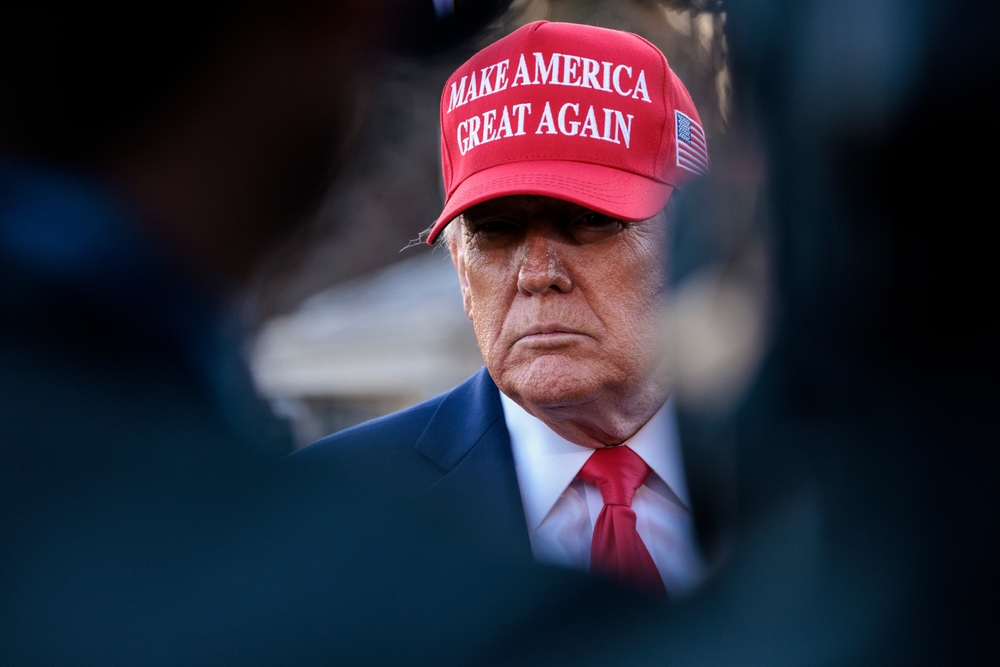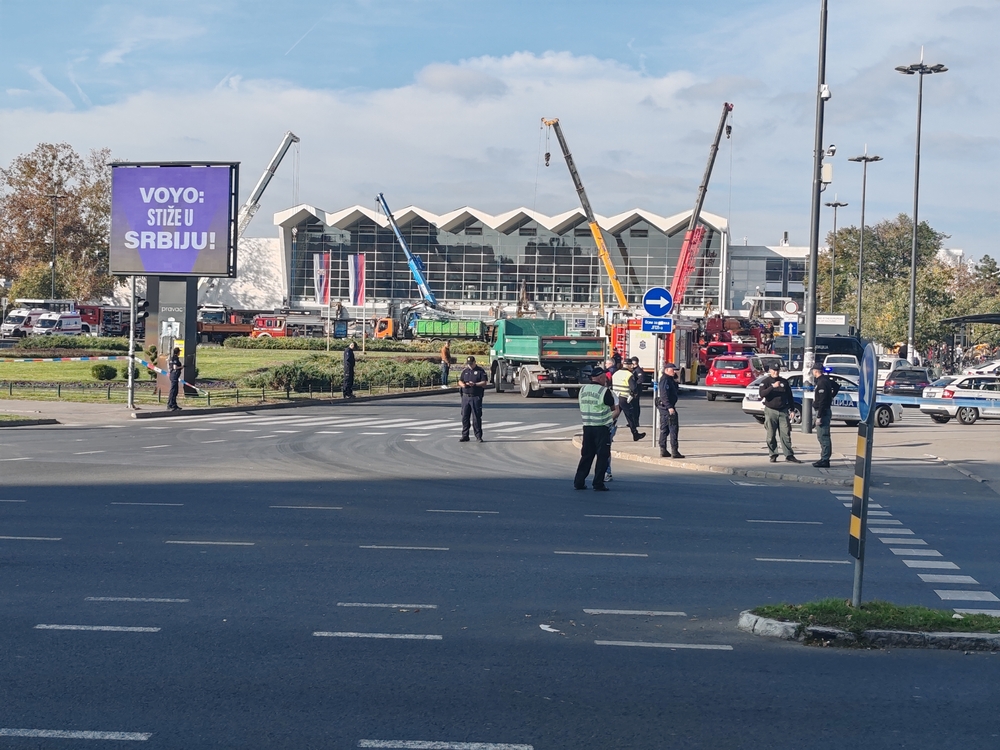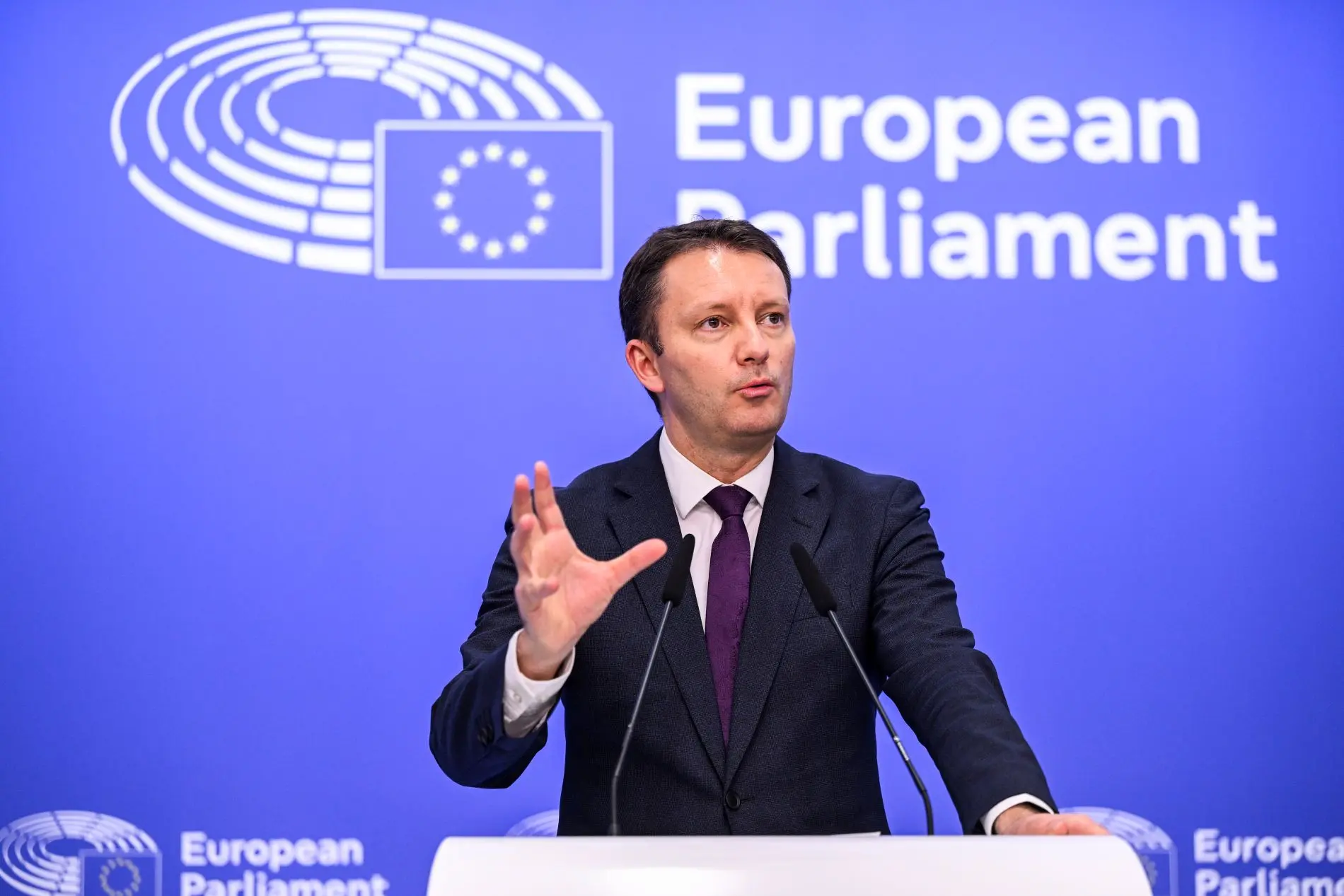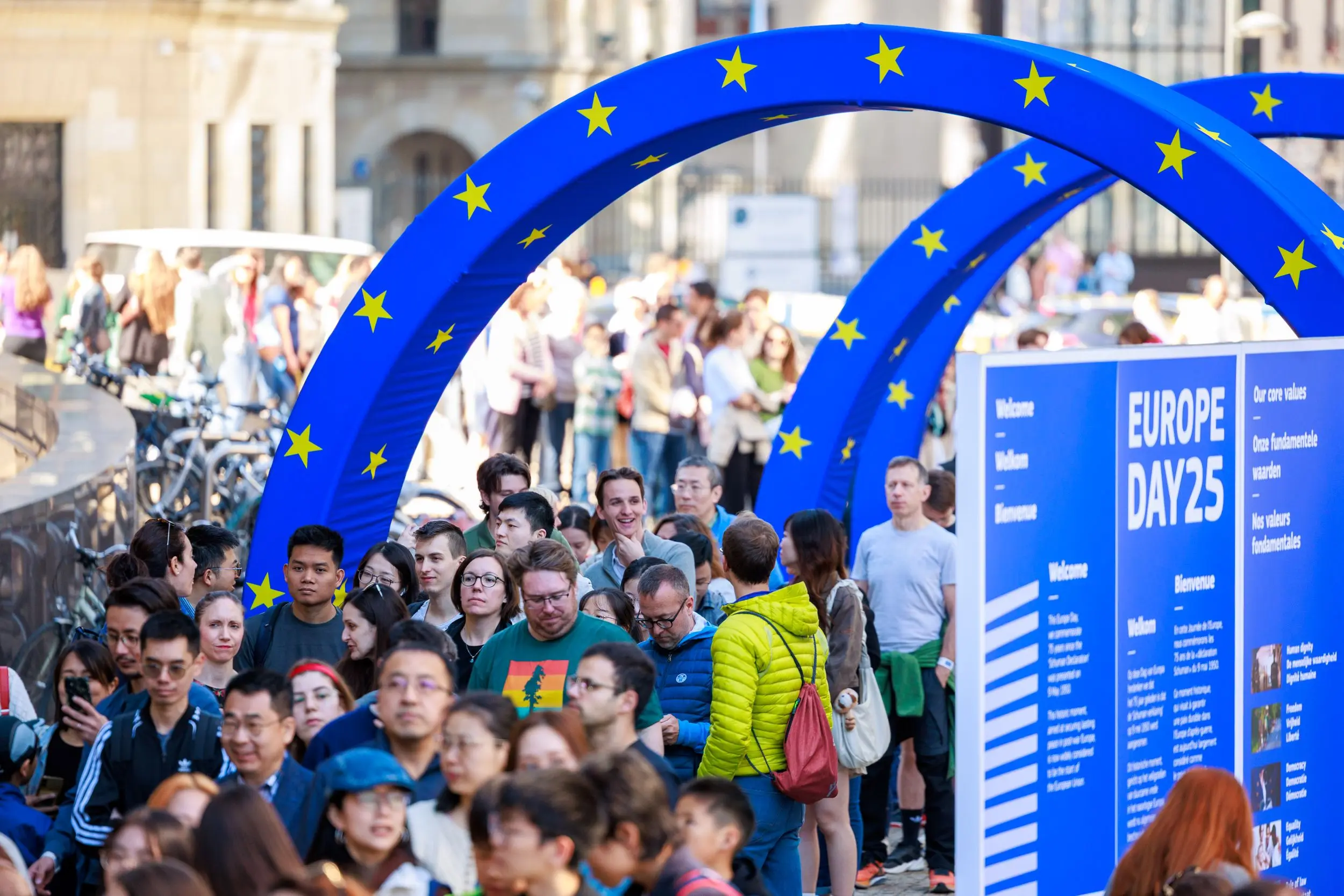Albania Votes in the Shadow of Trump
Exasperated political rhetoric, blurred boundaries between politics and entertainment, opaque interests: the upcoming political elections in Albania present many elements of Donald Trump’s America. An analysis

Albania-Votes-in-the-Shadow-of-Trump
Donald Trump © Joshua Sukoff/Shutterstock
If you closed your eyes and listened to the tone and content of the political rhetoric dominating the airwaves in Albania before elections this week, you might be forgiven for hearing Donald Trump. Both leading candidates reflect many of his signature traits: a populist flair, a disdain for check and balances, and emotionally charged, polarizing messages that blur the line between leadership and spectacle.
Albanians go to the polls on May 11 for parliamentary elections and, as so often before, the vote centers on personalities rather than policies, on individuals over institutions, and on rulers instead of leaders.
Ahead in the polls and expected to win is the current prime minister and Socialist Party head Edi Rama, who would secure an unprecedented fourth term. He is already the second longest serving post-war Albanian leader after Enver Hoxha – another victory would give him sixteen years in power.
And power it is. The art, the clothes, and the linguistic panache bolster the image of a modern, enlightened democrat but Albanians and diplomats based in Albania know that few if any decisions of significance in the country fail to cross his desk.
Rama’s tenure has been marked by deep-rooted corruption that sprouts in the form of high-rise buildings, casting shadows over the country’s EU aspirations.
Media and other reports have repeatedly drawn connections between Albania’s political establishment and organized crime networks involved in drug trafficking and money laundering. An April 2025 study by the Global Initiative Against Transnational Organized Crime highlighted the Albanian mafia’s role in the global cocaine trade, particularly through the port of Dürres, enabled by corruption within Albania’s political, law enforcement, and judicial institutions.
Rama’s ties to these activities remain unclear but, over twelve years, he has blurred the lines between the state, the ruling party, and himself. His omnipresence in Albanian media and public life reinforces the perception of a personal power grip.
Albanians would refuse to tolerate this and would surely vote Rama out of power if they had a viable alternative. Unfortunately, Albania’s curse is the lack of another person or force to rule with public interest in mind. Rama slides through because the opposition is divided and despised.
Leading the main opposition Democratic Party is Sali Berisha. Yes, that Sali Berisha – the former communist party member and Politburo doctor who served as the first post-communist president in 1992 and crashed with the collapse of massive pyramid schemes in 1997 that his government encouraged and allowed. He survived that debacle and returned as prime minister for two terms (2005-2013), when his unrelenting corruption and authoritarianism opened the door for Rama to take the ball.
Recent events in Washington, namely, the surge of MAGA and Trump, have given Berisha a third life. He is now pushing to “Make Albania Great Again”, and is paying handomely to do so. As campaign advisor, he hired Chris LaCivita who helped run Trump’s last presidential campaign, and the party has engaged the Florida-based lobbying firm Continental Strategies for six million dollars over two years.
The Berisha – LaCivita narrative is clear: true-blooded, right-wing forces versus the leftist, Soros-backed Rama who, as Biden did with Trump, tried to eliminate Berisha with bogus trials and politicized courts.
Beyond the elections, another goal is certainly to get Berisha and his family removed from the U.S. persona-non-grata list, where he landed in 2021 due to "significant corruption" . Photos of Berisha at Mar-a-Lago may come soon.
But not so fast, Rama says, as he worked with Trump before and welcomed his return to power. More significantly – and in the mercantalist language that Trump understands best – Rama offered the island of Sazan at the junction of the Adriatic and Ionian seas to son-in-law Jared Kushner for development as a luxury resort.
The details of the offer remain murky, but as both sides vie for Trump’s favor, Rama may find himself under pressure to sweeten the deal. Perhaps Kuçova – known as Stalin City during Albania’s communist era – could be rebranded again. In today’s geopolitical theater, “Trump City” is not far-fetched.
In the meantime, Albanians are stuck between the old-guard strongman they pushed out and the polished, media-savvy one they have now.
*Fred Abrahams is the author of Modern Albania: from Dictatorship to Democracy , published by NYU Press.
Albania Votes in the Shadow of Trump
Exasperated political rhetoric, blurred boundaries between politics and entertainment, opaque interests: the upcoming political elections in Albania present many elements of Donald Trump’s America. An analysis

Albania-Votes-in-the-Shadow-of-Trump
Donald Trump © Joshua Sukoff/Shutterstock
If you closed your eyes and listened to the tone and content of the political rhetoric dominating the airwaves in Albania before elections this week, you might be forgiven for hearing Donald Trump. Both leading candidates reflect many of his signature traits: a populist flair, a disdain for check and balances, and emotionally charged, polarizing messages that blur the line between leadership and spectacle.
Albanians go to the polls on May 11 for parliamentary elections and, as so often before, the vote centers on personalities rather than policies, on individuals over institutions, and on rulers instead of leaders.
Ahead in the polls and expected to win is the current prime minister and Socialist Party head Edi Rama, who would secure an unprecedented fourth term. He is already the second longest serving post-war Albanian leader after Enver Hoxha – another victory would give him sixteen years in power.
And power it is. The art, the clothes, and the linguistic panache bolster the image of a modern, enlightened democrat but Albanians and diplomats based in Albania know that few if any decisions of significance in the country fail to cross his desk.
Rama’s tenure has been marked by deep-rooted corruption that sprouts in the form of high-rise buildings, casting shadows over the country’s EU aspirations.
Media and other reports have repeatedly drawn connections between Albania’s political establishment and organized crime networks involved in drug trafficking and money laundering. An April 2025 study by the Global Initiative Against Transnational Organized Crime highlighted the Albanian mafia’s role in the global cocaine trade, particularly through the port of Dürres, enabled by corruption within Albania’s political, law enforcement, and judicial institutions.
Rama’s ties to these activities remain unclear but, over twelve years, he has blurred the lines between the state, the ruling party, and himself. His omnipresence in Albanian media and public life reinforces the perception of a personal power grip.
Albanians would refuse to tolerate this and would surely vote Rama out of power if they had a viable alternative. Unfortunately, Albania’s curse is the lack of another person or force to rule with public interest in mind. Rama slides through because the opposition is divided and despised.
Leading the main opposition Democratic Party is Sali Berisha. Yes, that Sali Berisha – the former communist party member and Politburo doctor who served as the first post-communist president in 1992 and crashed with the collapse of massive pyramid schemes in 1997 that his government encouraged and allowed. He survived that debacle and returned as prime minister for two terms (2005-2013), when his unrelenting corruption and authoritarianism opened the door for Rama to take the ball.
Recent events in Washington, namely, the surge of MAGA and Trump, have given Berisha a third life. He is now pushing to “Make Albania Great Again”, and is paying handomely to do so. As campaign advisor, he hired Chris LaCivita who helped run Trump’s last presidential campaign, and the party has engaged the Florida-based lobbying firm Continental Strategies for six million dollars over two years.
The Berisha – LaCivita narrative is clear: true-blooded, right-wing forces versus the leftist, Soros-backed Rama who, as Biden did with Trump, tried to eliminate Berisha with bogus trials and politicized courts.
Beyond the elections, another goal is certainly to get Berisha and his family removed from the U.S. persona-non-grata list, where he landed in 2021 due to "significant corruption" . Photos of Berisha at Mar-a-Lago may come soon.
But not so fast, Rama says, as he worked with Trump before and welcomed his return to power. More significantly – and in the mercantalist language that Trump understands best – Rama offered the island of Sazan at the junction of the Adriatic and Ionian seas to son-in-law Jared Kushner for development as a luxury resort.
The details of the offer remain murky, but as both sides vie for Trump’s favor, Rama may find himself under pressure to sweeten the deal. Perhaps Kuçova – known as Stalin City during Albania’s communist era – could be rebranded again. In today’s geopolitical theater, “Trump City” is not far-fetched.
In the meantime, Albanians are stuck between the old-guard strongman they pushed out and the polished, media-savvy one they have now.
*Fred Abrahams is the author of Modern Albania: from Dictatorship to Democracy , published by NYU Press.









